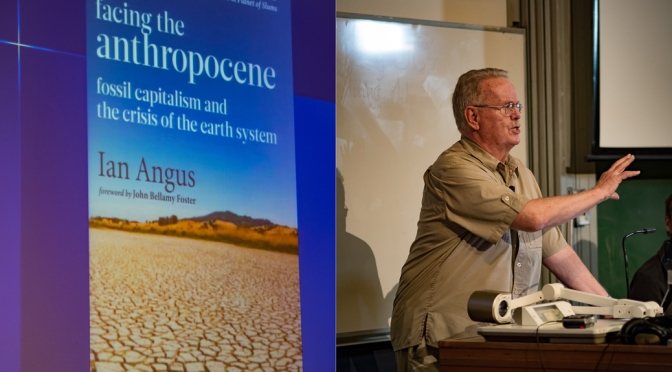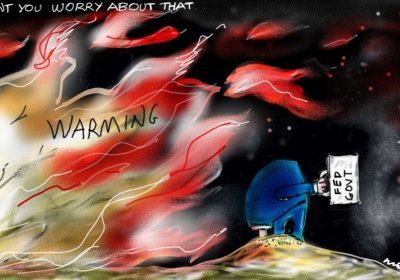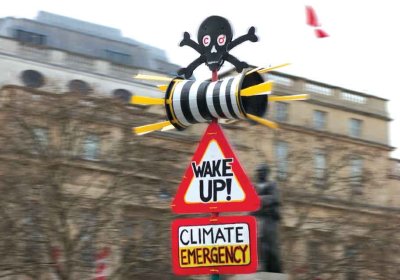The federal government has delivered another budget for the billionaire class that is hell-bent on putting their profits ahead of the climate emergency, writes Peter Boyle.
Carbon emissions and reduction targets
Pressure from the Biden administration’s pledges on swift climate change action seems to have pushed Scott Morrison to mention he indeed has a plan to reduce emissions, writes Pip Hinman.
Prime Minister Scott Morrison is fond of saying that Australia only produces 1.3% of global greenhouse emissions. He says this to bolster his climate denialist position that his government does not need to take a lead on cutting carbon emissions. This position is fundamentally wrong.
Catastrophic fires in New South Wales and Queensland have come early in the fire season, which usually starts in October. Climate scientists and frontline fire fighters agree: they are a consequence of climate change.
The Australia Institute (TAI) released its latest annual Climate of the Nation 2019 report on September 10. The annual report, first produced by the Climate Institute and for the past two years by TAI, has been tracking attitudes on climate change for more than a decade.
UN Secretary General António Guterres wants only those countries that can show “concrete, realistic plans” for reducing their carbon emissions to come the the UN climate summit in September. But you can be sure the recalcitrants, such as Australia, will be there.
The climate emergency is already impacting all our lives. As it gets worse, we will be affected by more catastrophic floods and storms, bushfires and droughts. Globally there will be less clean water and farmland available. It is a result of an economic system — capitalism — in which private companies’ profit-making is privileged over the real needs of communities and their environments.
When renowned ecosocialist Ian Angus came to Australia in 2011 he observed that for most people it is “easier to imagine the end of the world than to imagine the end of capitalism”.
Unfortunately, imagining the end of the world is getting easier. There are almost daily reports of the accumulating effects of climate change, to choose just one source of potential apocalypse.
Another United Nations climate conference (COP23) is over — though many people would have barely noticed, given the lack of media coverage. The Paris Climate Agreement is locked in and, contrary to the Coalition’s inetrpretation, Australia needs to ratchet up its emissions reduction.
This is a useful time to reflect on where Australia sits globally on climate action and what areas are of concern.
ENGIE, the French company that owns two of Victoria's coal power stations, announced on November 2 it will close the oldest, Hazelwood, by March, and is selling the other, Loy Yang B. The power stations are in the Latrobe Valley, east of Melbourne.
 Author Ian Angus at the launch of 'Facing the Anthropocene'. Sydney, May 13.
Facing the Anthropocene: Fossil Capitalism & the Crisis of the Earth System
By Ian Angus
Monthly Review Press
New York, 2016
We are living in a time of unparalleled ecological breakdowns and the crisis is much worse than most people realise. There are other books that tell this harrowing story, but Ian Angus's Facing the Anthropocene is different.
Author Ian Angus at the launch of 'Facing the Anthropocene'. Sydney, May 13.
Facing the Anthropocene: Fossil Capitalism & the Crisis of the Earth System
By Ian Angus
Monthly Review Press
New York, 2016
We are living in a time of unparalleled ecological breakdowns and the crisis is much worse than most people realise. There are other books that tell this harrowing story, but Ian Angus's Facing the Anthropocene is different.
- Previous page
- Page 2
- Next page









